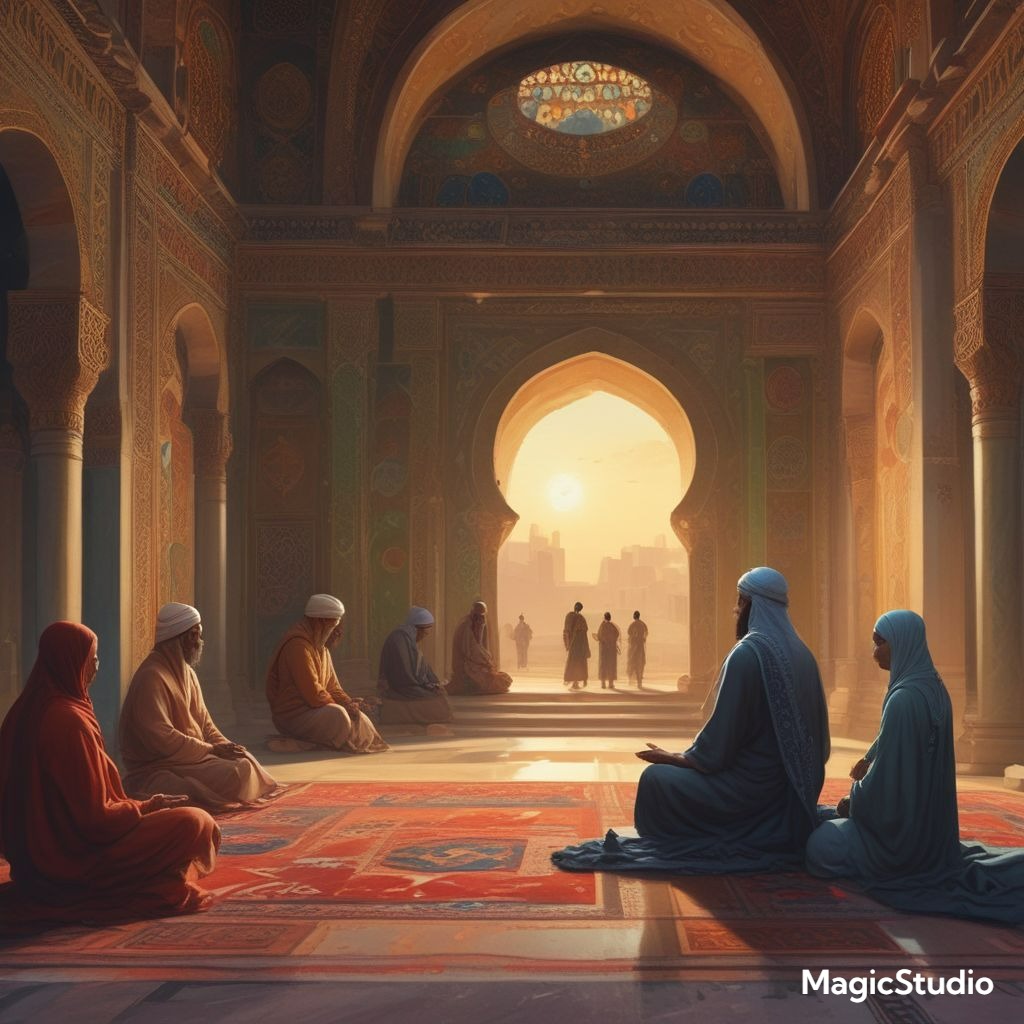Dreams are a mysterious and spiritual aspect of a Muslim’s life. While some are simply reflections of daily thoughts, others may carry profound meanings. One of the most inspiring dreams a believer can have is meeting the Sahaba (companions of the Prophet Muhammad ﷺ). What does Islam say about such a dream? What might it mean if you see Abu Bakr, Umar, Ali, Aisha, or other companions?
Let’s explore the significance of meeting the Sahaba in dreams through the lens of Islamic tradition.
🌟 1. Who Are the Sahaba and Why Are They Spiritually Significant?
The Sahaba were the Prophet’s closest companions—men and women who witnessed the message of Islam firsthand, accepted it with sincerity, and supported the Prophet ﷺ with their lives and wealth. Allah praises them in the Qur’an:
“And the first forerunners [in the faith] among the Muhajireen and the Ansar… Allah is pleased with them, and they are pleased with Him.”
— (Surah At-Tawbah 9:100)
Meeting a Sahabi in a dream is not ordinary. It symbolizes a deep spiritual connection to the core values of Islam—faith, sacrifice, brotherhood, and truthfulness. It may also reflect:
-
Your admiration or longing for Islamic knowledge
-
A reminder to emulate the Sahaba’s dedication
-
A sign that your heart is aligned with the righteous
The Sahaba are often considered spiritual role models, and seeing them in dreams may serve as encouragement or even gentle correction in one’s faith journey.
💭 2. What Does It Mean to See a Specific Sahabi?
Just like in waking life, every companion of the Prophet ﷺ had unique qualities. Seeing a specific Sahabi in your dream may carry symbolic meaning:
➤ Abu Bakr (RA) – Often symbolizes truthfulness, leadership, and spiritual closeness to the Prophet ﷺ. A dream of him might suggest you’re being guided to uphold sincerity and steadfastness.
➤ Umar ibn al-Khattab (RA) – Symbol of justice, strength, and reform. Seeing him may reflect a call to stand for truth or eliminate wrong from your life.
➤ Uthman ibn Affan (RA) – Associated with generosity, modesty, and purity. A dream involving him might be a call toward inner cleansing or charitable actions.
➤ Ali ibn Abi Talib (RA) – Represents wisdom, bravery, and knowledge. Seeing him could be a sign to seek deeper understanding or confront your fears with courage.
➤ Aisha (RA) – A symbol of intelligence, knowledge, and devotion. Dreaming of her may relate to your pursuit of Islamic knowledge or improving your spiritual discipline.
Each dream must be understood in context: What were the companions doing? How did they interact with you? Were you learning from them, speaking with them, or merely watching?
🧎 3. How Should You React to a Dream About the Sahaba?
Dreams of this nature should be handled with respect and humility. They are often a reminder, not a revelation. Islam encourages believers to:
-
Thank Allah for such a dream. It’s a spiritual gift.
-
Reflect deeply on the message. Is there something in your life that aligns with the Sahabi’s character—or something you need to correct?
-
Increase salawat on the Prophet ﷺ, as connection with his companions also reflects your love for him.
-
Keep the dream private, unless you are speaking to a knowledgeable scholar or someone trustworthy.
-
Avoid exaggerating or claiming divine status through the dream. It is a sign of blessing—not superiority.
Remember: dreams can inspire, but they are not a source of law or decision-making. If the dream contains guidance, it must always align with Qur’an and Sunnah.
📝 A Spiritual Honor, Not a Guarantee
Seeing or meeting a Sahabi in your dream is a rare and beautiful experience. It may be a sign that your heart is close to the righteous or that Allah is reminding you of their legacy for your own life.
But like all dreams in Islam, it should lead to greater humility, reflection, and action—not pride or confusion. May Allah allow us to follow in their footsteps, in dreams and in reality.
“O Allah, gather us with the Prophet and his companions in the highest level of Jannah.”
— Ameen.



